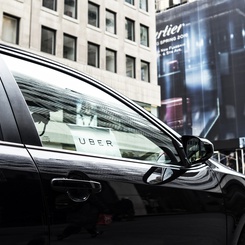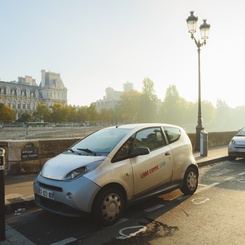Fossil fuels are unsustainable, so the existing paradigm within which car manufacturers exist is, by definition, finite. So it stands to reason that both industry and academic experts agree: it’s only a matter of time before the electro-mobility paradigm takes over the mainstream. That said, major hurdles still stand in its way.
The ESSEC Armand Peugeot Chair – the objective of which is to discuss and analyze the key challenging issues concerning electro-mobility – recently organized their first international conference and brought together a unique group of experts. This group included:
Carole Donada, Professor of Management, Head of Chair Armand Peugeot at ESSEC Business School
Igor Demay, EV Coordinator, PSA Peugeot Citroën
John Paul MacDuffie, Associate Professor and Director Vehicle and Mobility Innovation program, Wharton School
Giuseppe Giulio Calabrese, Senior researcher at Ceris-CNR
Willett Kempton, Professor, Public Policy & Administration, University of Delaware
Here’s what they think about the challenges that lie ahead, for both consumers and manufacturers:
Electric vehicles look like cars, but consumers (and manufacturers) need to think about them in a whole new way
The first major hurdle is psychological. “Consumers are used to liquid fuels. They’re used to refueling quickly, refueling on the road and getting long range. Electric cars are different in all these respects,” explains Willet Kempton. “This is something that consumers will have to get used to: although it looks like a car, it works in a different way.”
Arguably, there are a lot of conveniences to owning an electric car – most importantly, the ability to refuel from home and the significantly reduced long term ownership costs. However, investing in an electric car might seem a lot more expensive at first glance if you’re not thinking about it in the right way and taking the long-term fuel savings into consideration.
In addition, younger generations especially feel a lot less emotional attachment to their vehicle. They might even feel more attached to their phones. What will an electro-mobility paradigm change about this, if anything?
In this respect, car manufacturers are in fact faced with the same psychological hurdles. Indeed, as Carole Donada explains, moving from a pure Car industry to an electro-mobility industry will require that manufactures think about their products and services differently – and subsequently approach revenue generation in a new way. An electro mobility paradigm will change the entire business model of the industry as car manufacturer looks to sell a product but also delve into new, perhaps uncharted territory.
Infrastructure needs to catch up to the technology
According to John Paul MacDuffie, the biggest hurdle to overcome is related to infrastructure. While electric technology is developing, these electric cars will need to recharge, both at home and on the go. How will the industry respond to these needs? The key players don’t really have the answer to this important question yet.
“We have a bit of a ‘chicken or the egg’ type scenario on our hands. Advancements on the various fronts are required almost simultaneously to create a tipping point,” he explains.
Understandably, a big part of the activities of the ESSEC Armand Peugeot Chair is related to addressing the ‘vehicle to grid’ conundrum: where will electric cars plug-in, how will the grid be organized and will it contribute to an electric car ownership incentive? Again, this will be a hurdle for both electric car owners and manufacturer: what mechanisms will articulate the relationships between these two players?
The popularity of hybrids will hinder in the electric car in the short term
The hybrid might seem like a baby step between the fossil fuel, and the electric-mobility paradigm. That said, as the popularity of hybrid vehicles grows, there is there will be less room for traditional car owners to go straight to electric. This may actually slow progression of the electro-mobility paradigm in the short term.
In the long term, all these changes are part of a progression that will take us further and further away from the fossil fuel paradigm to which both manufacturers and consumers have become accustomed.









